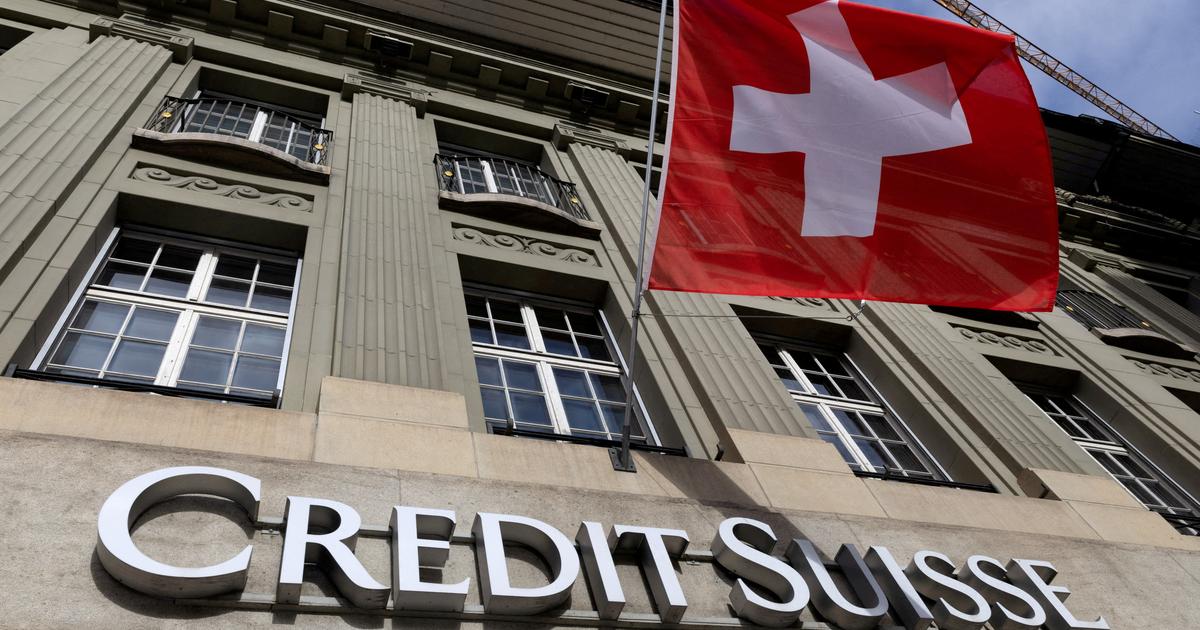The major Swiss bank Credit Suisse has failed.
The larger competitor UBS takes over the ailing bank.
The primary goal was to prevent a conflagration in the industry.
Zurich/Bern - There is a huge earthquake in the European banking scene.
The takeover of the struggling Credit Suisse by its smaller competitor should calm the nervous financial markets.
"The Federal Council is convinced that the takeover is the best solution to restore confidence," said Swiss President Alain Berset on Sunday evening.
Why Did Credit Suisse (CS) Stumble?
The venerable bank, born in 1856, has sidelined itself with years of mismanagement and risky business.
There was the Bulgarian mafia, which, according to the public prosecutor, carried out money laundering via CS accounts undisturbed from 2004 to 2007.
There was the windy business of a British CS subsidiary in Mozambique in 2013, where millions disappeared in loans to state-owned companies.
Then, between 2016 and 2019, there was spying on the company's own executives, one of whom was pursued in gangster fashion on the streets of Zurich.
And the bank was recently involved in the ventures of the Archegos hedge fund and the Greensill funds and lost millions when they collapsed.
Confidence in CS had already fallen,
Why did management fail?
The "Tages-Anzeiger" identifies the rip-off mentality in the bank's carpeted floors as one reason.
The newspaper calculated from the annual reports that the bank has made a cumulative loss of CHF 3.2 billion since 2013, but that the top managers pocketed CHF 32 billion (EUR 32.2 billion) in bonuses in the same period.
Shouldn't the authorities have intervened earlier?
For the banking industry service Inside Paradeplatz, the Swiss National Bank, the financial regulator and the government failed.
Editor Lukas Hässig wrote on Sunday that they should have been asking the bank critical questions since the autumn at the latest, when doubts about the future of Credit Suisse grew louder.
Then things could have turned around.
That didn't happen.
"In recent years, a panic orchestra has taken command on the Helvetia bridge," wrote Hässig.
"They watched idly for months as the CS Titanic raced towards the iceberg at full speed." Helvetia is the Latin name for Switzerland.
How important is Credit Suisse?
Like Deutsche Bank, it was one of the 30 systemically important banks in the world.
This classification comes from the International Financial Stability Board (FSB), which oversees the international financial system.
These banks are internationally networked, which is why their failure could sweep others down - they are too big to fail.
They are subject to special security requirements.
Together with CS, UBS will now become a mammoth bank, larger than Deutsche Bank.
It will have total assets of more than CHF 1.5 trillion (data as of the end of 2022).
Deutsche Bank had a good 1.3 trillion euros.
When was the last global financial crisis?
It started in the summer of 2007.
In the speculatively bloated US housing market, interest rates on interbank financial loans soared when it became clear that mortgages for less solvent customers would be defaulted en masse.
The banks no longer trusted each other.
As a result, on September 15, 2008, the major American bank Lehman Brothers collapsed.
The crisis that followed spread worldwide, and numerous banks had to be supported with billions in loans.
There are no such problems as there were then, where many banks got into trouble because junk mortgages suddenly became worthless.
Banks are currently having trouble with the turnaround in interest rates in the USA and the euro area.
There were price losses on the markets for government bonds, for example.
This becomes a problem especially when banks sell the paper before the end of the maturity period.
The Silicon Valley Bank was forced to do so because investors threatened to withdraw their funds if they did not get higher interest rates.
The resulting losses broke her neck.
Is the world better armed than in 2016?
In order to make the industry more crisis-proof, the regulations were tightened.
Banks now have to have significantly more equity capital with which they can buffer losses in crises.
In addition, since 2016 in Europe, if an institution gets into trouble, owners and creditors have been asked to pay first.
Deposits from savers and money from a crisis fund financed by the banks (Single Resolution Fund) are only used as a last resort.
In the end there were around 66 billion euros.
How are bank savings secured?
In Germany, customers' savings deposits are legally protected up to EUR 100,000 per person in the event of a bank failure.
In addition, almost all credit institutions voluntarily secure customer funds far beyond the legal limit.
According to the Federal Association of German Banks, private banks generally protect at least EUR 750,000 in deposits per bank.
At many institutes, the security limits are even higher.
It is similar with savings banks and cooperative banks.
dpa















